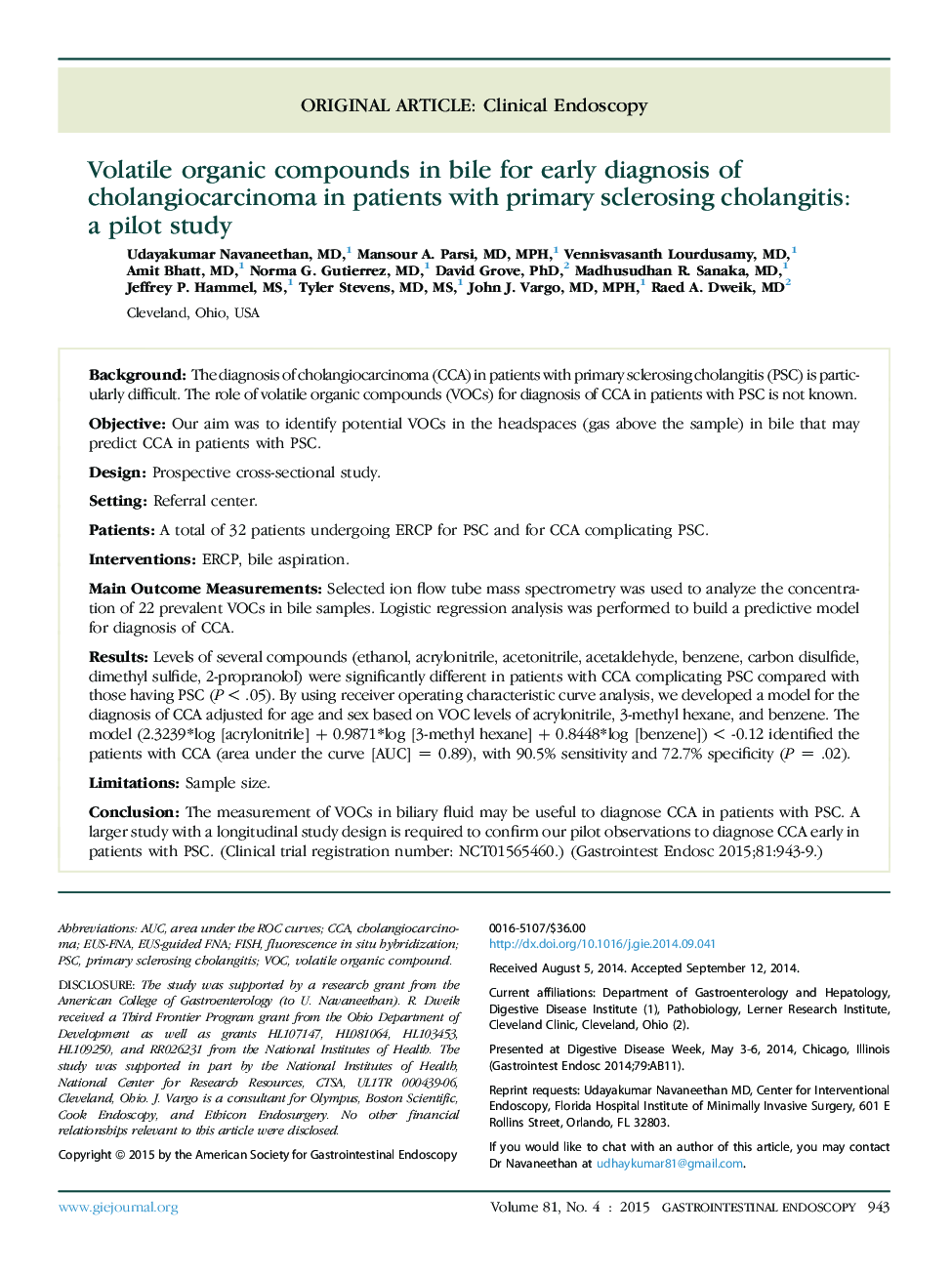| Article ID | Journal | Published Year | Pages | File Type |
|---|---|---|---|---|
| 6097852 | Gastrointestinal Endoscopy | 2015 | 8 Pages |
BackgroundThe diagnosis of cholangiocarcinoma (CCA) in patients with primary sclerosing cholangitis (PSC) is particularly difficult. The role of volatile organic compounds (VOCs) for diagnosis of CCA in patients with PSC is not known.ObjectiveOur aim was to identify potential VOCs in the headspaces (gas above the sample) in bile that may predict CCA in patients with PSC.DesignProspective cross-sectional study.SettingReferral center.PatientsA total of 32 patients undergoing ERCP for PSC and for CCA complicating PSC.InterventionsERCP, bile aspiration.Main Outcome MeasurementsSelected ion flow tube mass spectrometry was used to analyze the concentration of 22 prevalent VOCs in bile samples. Logistic regression analysis was performed to build a predictive model for diagnosis of CCA.ResultsLevels of several compounds (ethanol, acrylonitrile, acetonitrile, acetaldehyde, benzene, carbon disulfide, dimethyl sulfide, 2-propranolol) were significantly different in patients with CCA complicating PSC compared with those having PSC (PÂ < .05). By using receiver operating characteristic curve analysis, we developed a model for the diagnosis of CCA adjusted for age and sex based on VOC levels of acrylonitrile, 3-methyl hexane, and benzene. The model (2.3239*log [acrylonitrile]Â + 0.9871*log [3-methyl hexane]Â + 0.8448*log [benzene])Â < -0.12 identified the patients with CCA (area under the curve [AUC]Â = 0.89), with 90.5% sensitivity and 72.7% specificity (PÂ = .02).LimitationsSample size.ConclusionThe measurement of VOCs in biliary fluid may be useful to diagnose CCA in patients with PSC. A larger study with a longitudinal study design is required to confirm our pilot observations to diagnose CCA early in patients with PSC. (Clinical trial registration number: NCT01565460.)
